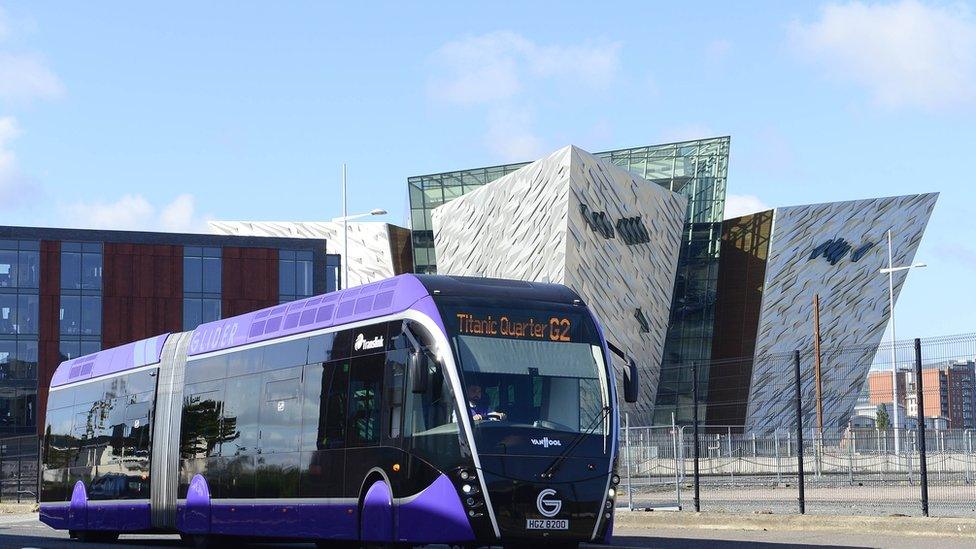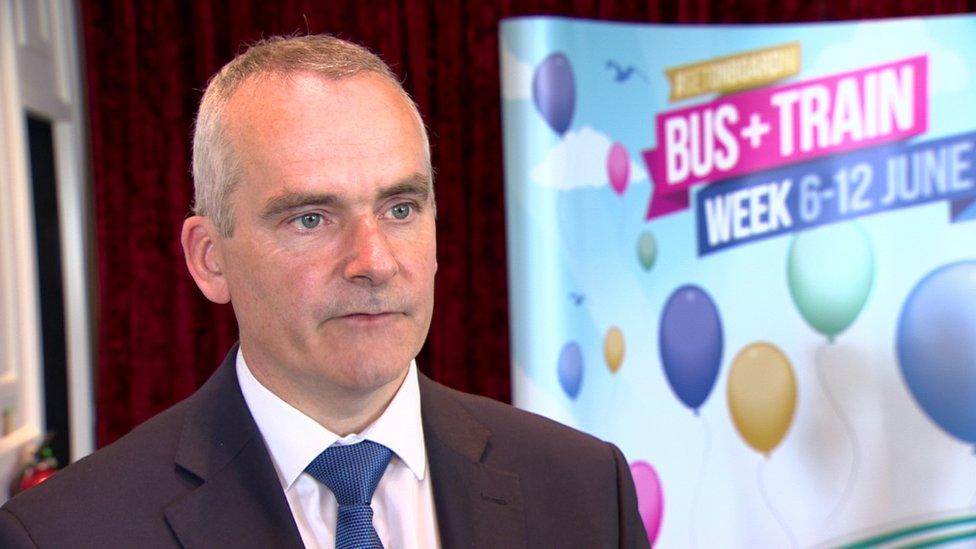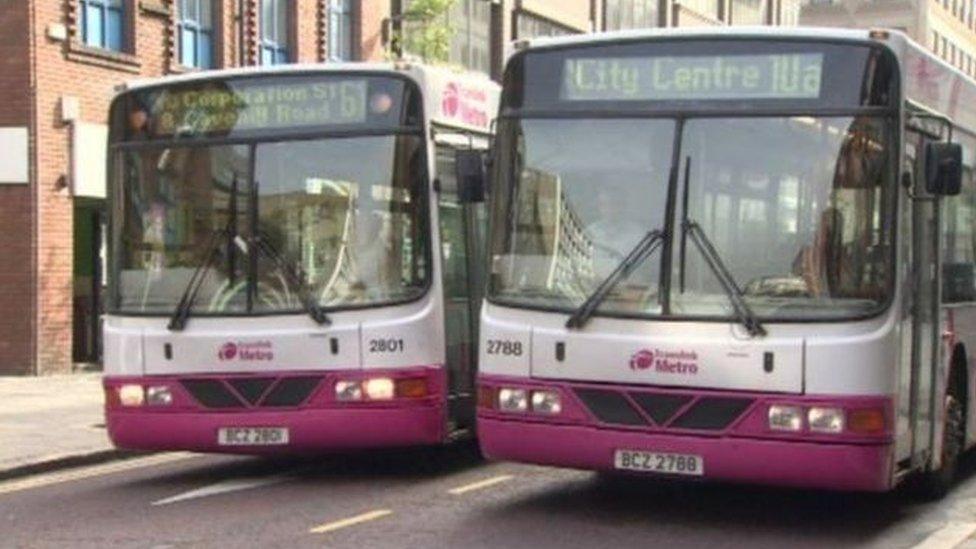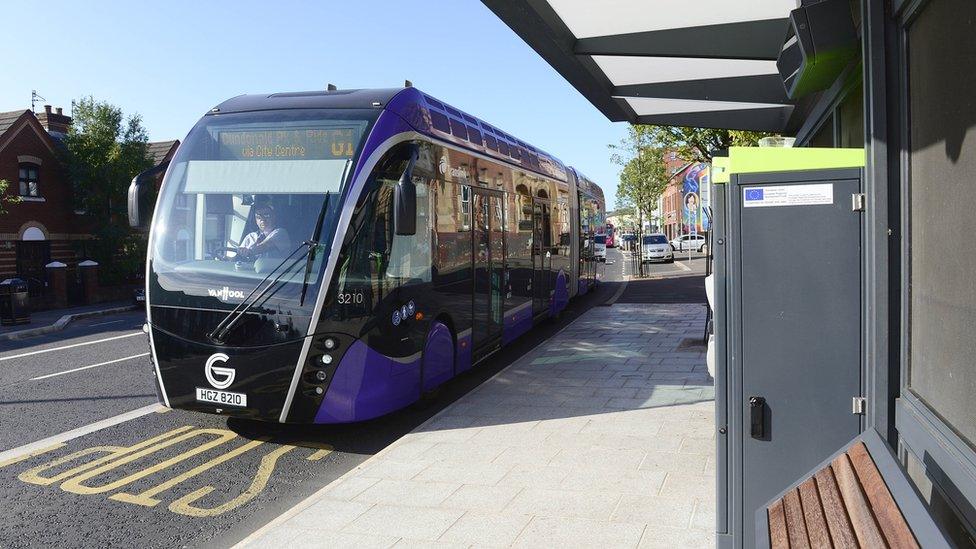Translink boss warns of legal action over funding
- Published

Translink's boss has warned of legal action if agreement cannot be reached with Stormont about public service funding in the next few weeks.
Chris Conway has written to Finance Minister Conor Murphy asking for a meeting to ensure commitment to protect public transport services.
The funding issues facing Translink are not a "short term solvency issue", he told a Stormont assembly committee.
The committee heard 80% of Translink funding comes from passengers.
The remaining 20% is public service obligation funding.
The public service funding goes towards socially-necessary services in rural areas, for example, and concessionary fares scheme, which is a government policy.

Chris Conway has written to the finance minister about Translink's future
Last month a senior civil servant issued a stark warning about the future of Northern Ireland's public transport provider, saying its viability was "in jeopardy".
Mr Conway told the Infrastructure Committee: "Translink has legal responsibilities and the board of directors have legal responsibilities.
"We believe we have a very strong legal case on the public service agreement in any case.
"That would be our next step if we aren't able to reach agreement with government in the next few weeks."
He added that was "not a route we would prefer to go down" and that Translink would prefer to reach an agreement with the Northern Ireland Executive.
He said: "If the government decided they couldn't afford these services, we would have a legal expectation to a transitionary phase to do that.
"It would be unlikely that these services would just stop one morning."
When asked what services are at risk of being cut, Mr Conway said he did not want to create panic and that was not something Translink was considering.
He said public transport infrastructure had been underfunded for many years and the executive needed to ensure continued delivery of vital services.
Mr Conway said the backlog in bus fleet investment means the average age of an Ulsterbus is 10 years old, compared with an industry average of seven years old.
He said some buses are 15 years old and some Goldline buses have a million miles on their odometer.
Mr Conway said maintain the rail network infrastructure would cost £55m a year for the next 10 years and some of the network is more than 44 years old.
- Published19 February 2020

- Published14 October 2019
